|
|
 |
|
I mash all my all grain brews for 90 minutes.
The first step is to heat the mash water which is already in the boiler; I heat it for about 25 minutes using a single
element boiler and about 13 minutes using a twin element boiler. At the same time, I pre-heat the mash tun by boiling
2 kettlefuls of boiling water and adding it to the mash tun. I always heat my mash water to around 80c, then after I
transfer the mash water to the mash tun, I wait until the water temperature drops to 72c before adding the grains.
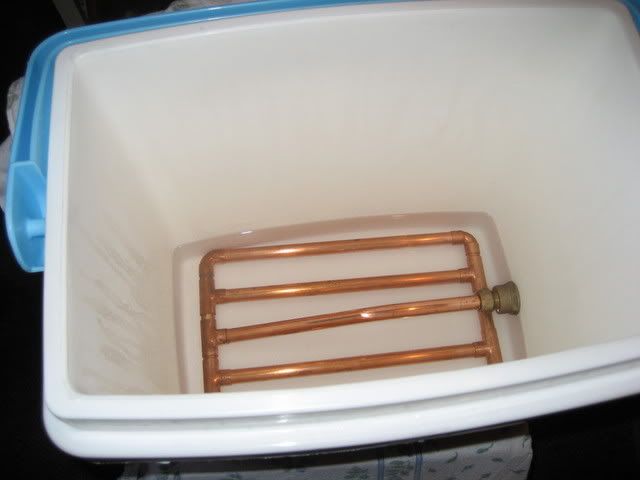
This photo shows the mash tun with the hot water from the kettle
inside, this pre-heating prevents rapid temperature loss when adding the mash water. Alternatively, you could heat the mash water up to 82c-85c,
then allow the mash water to cool to 72c before adding the grains.
When the sparge water has heated up. I empty the mash tun of the kettle water and immediately fill
the mash tun with the required amount of mash water. I add the water at the rate of between 2-3 litres of water to 1
kilo of grains.
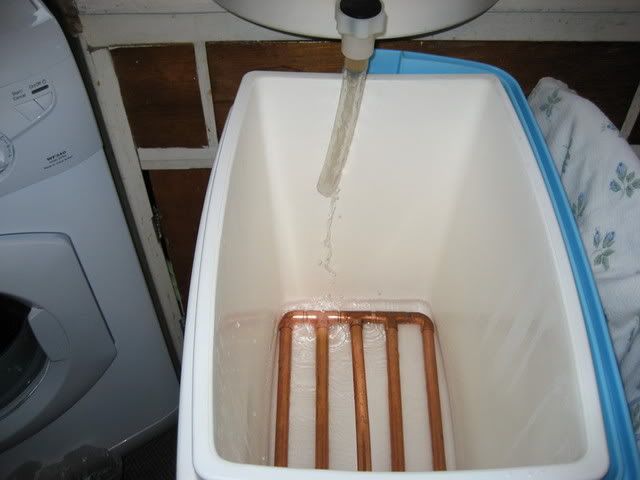
Adding the mash water to the mash tun as shown in the above photo.
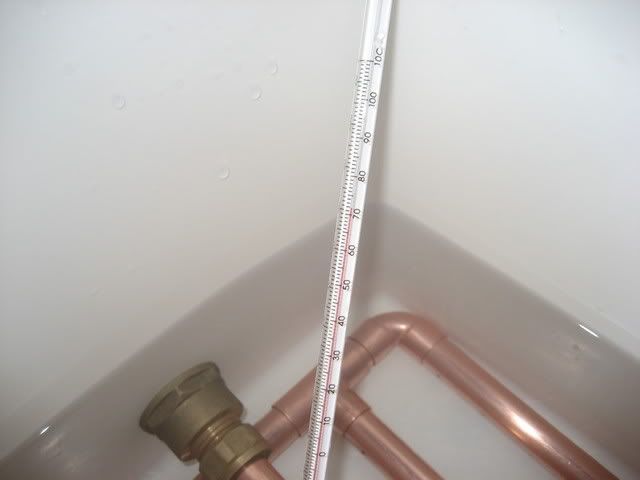
Before adding the grains, it is important to check that the water
is at the correct temperature. Aim for 72c as shown in the above photo.
The next step is to slowly add the grains; I also gently stir after adding each bag. Then
check the temperature of the grains, aim for between 62c-68c. I prefer to aim for 65c-68c as you can expect the
temperature to drop slightly as the mash processes. If the mash is either above or below this temperature range, simply
add cold or hot water to adjust the temperature.
|
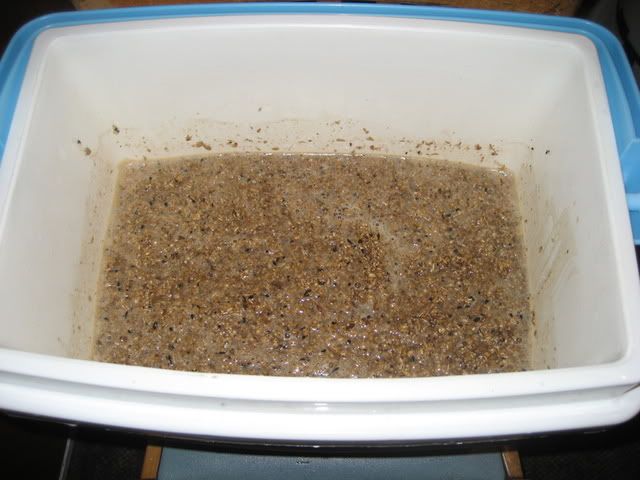
The above photo shows the grains mixed into the mash water.
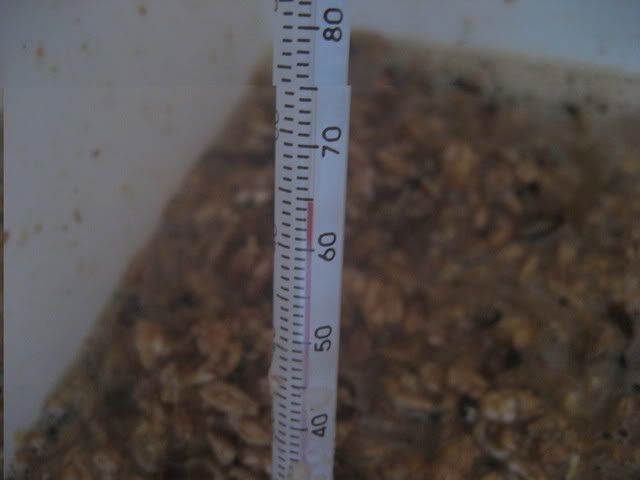
As the above photo shows, I have hit a temperature of 65c after
mixing the grains in, I am satisfied with this and therefore I fit the lid and wrap the mash tun in a sleeping bag for
extra insulation.
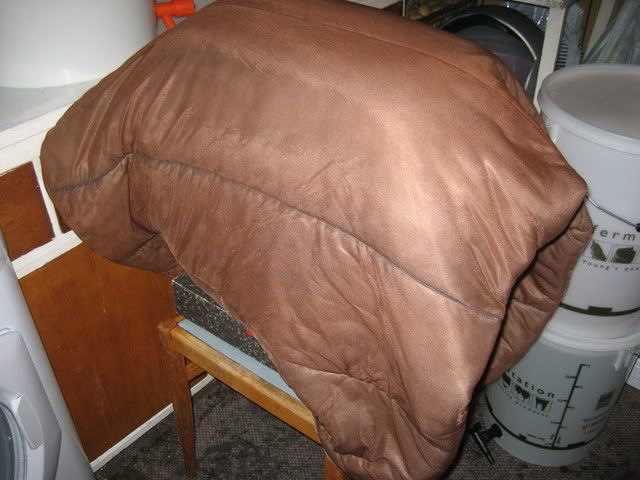
The next step is to check the P.H. of the mash, to do so I let a small amount out wort of
the mash tun tap into a jug, then dip a P.H. indicator paper in for a few seconds, then check the result.

The reading I am aiming for is 5.3, to check the reading compare
the middle colour on the paper, the one with no reading next to it, with the nearest colour and take the reading. It
appears to be between the 5.2 and 5.5 reading, I am happy with this.
I now leave this for 60 minutes; after this time has elapsed I
gently stir the mash and take another temperature reading. The temperature had fell to 64c, so I added a pint of boiling
water which was heated in the kettle and stirred gently again. This brought the temperature up to 65c; I was happy with
this so I re-fitted the lid and left the mash for another 30 minutes.
Please go to the next page, sparging options.
Next Page
|



